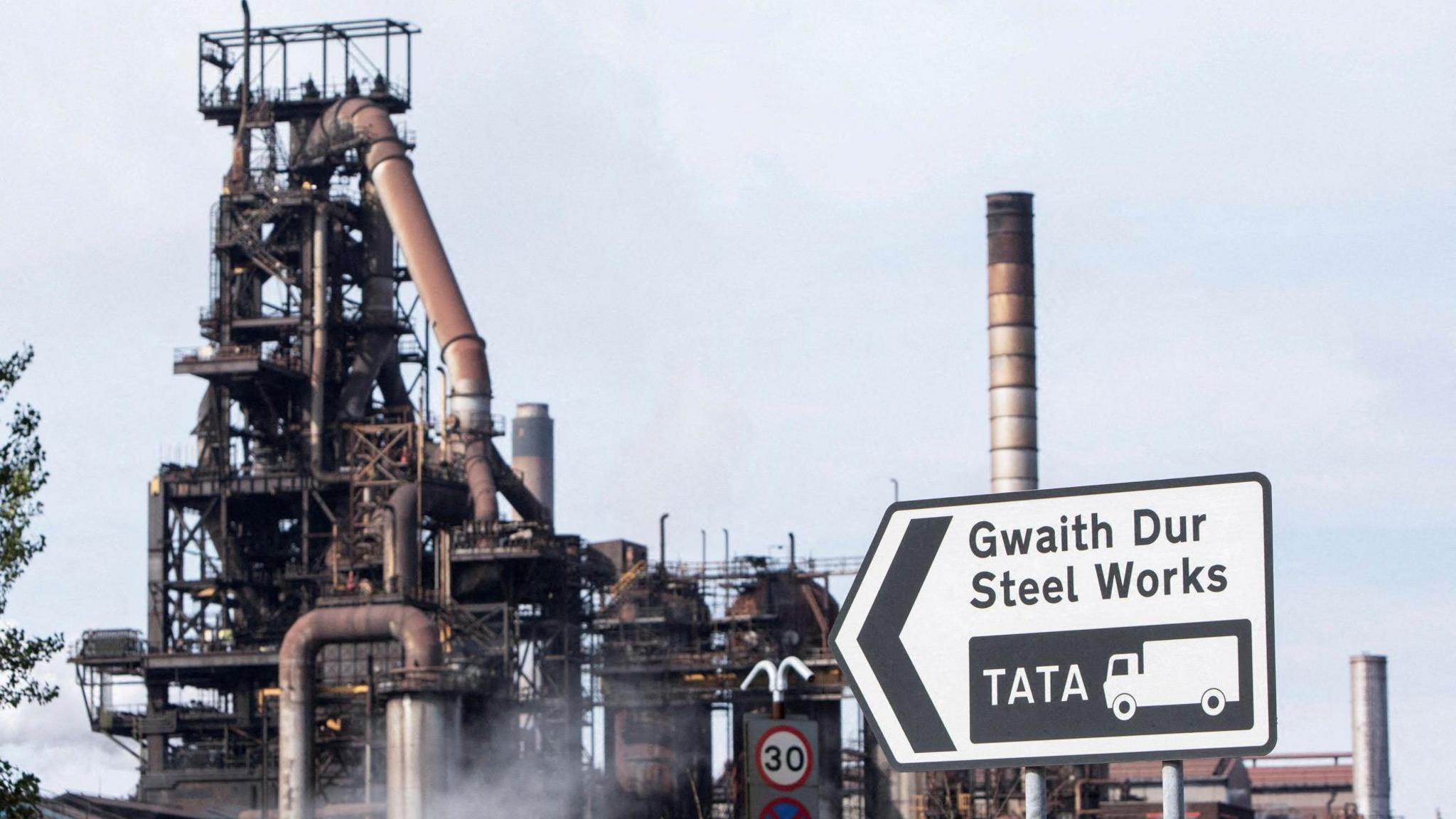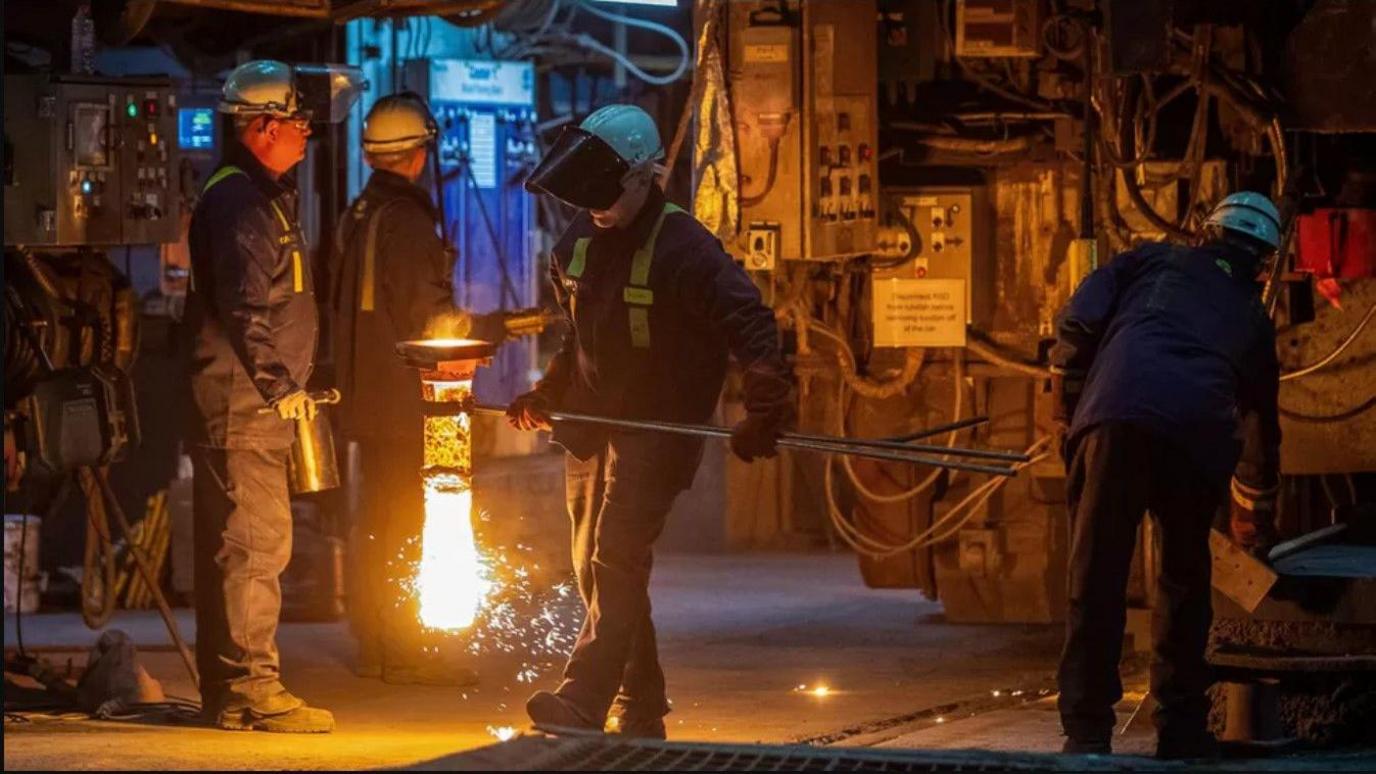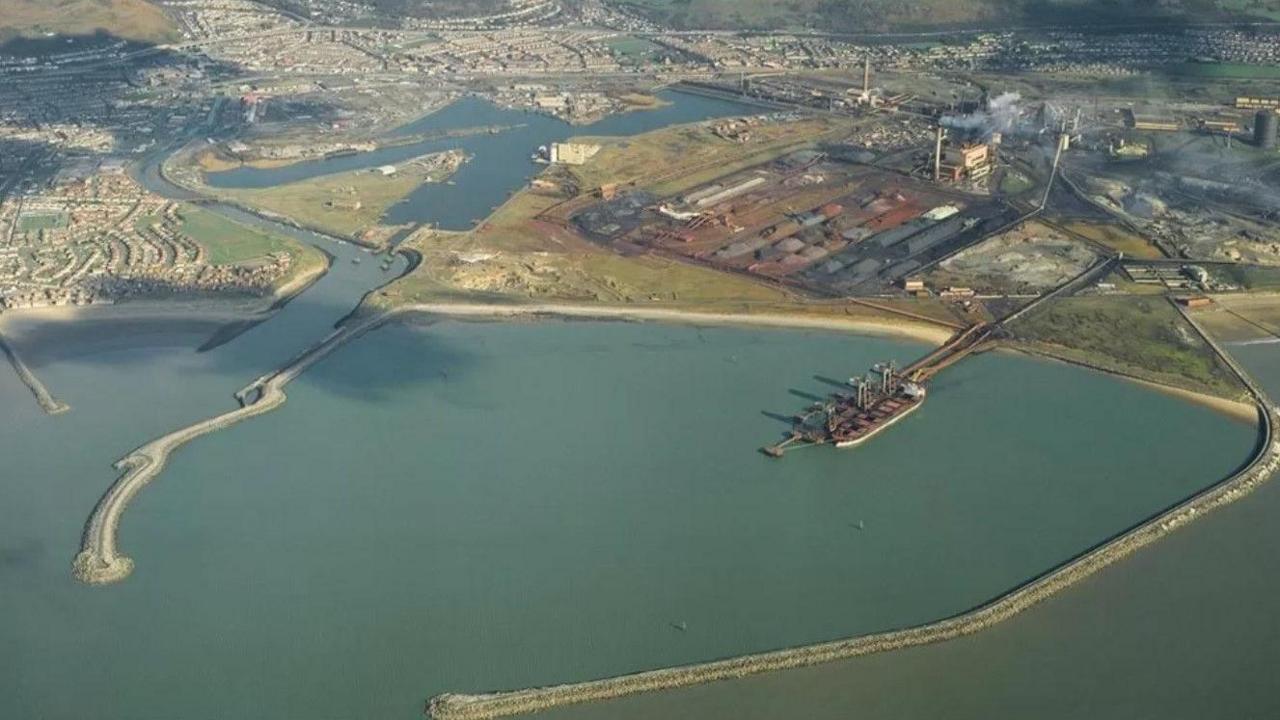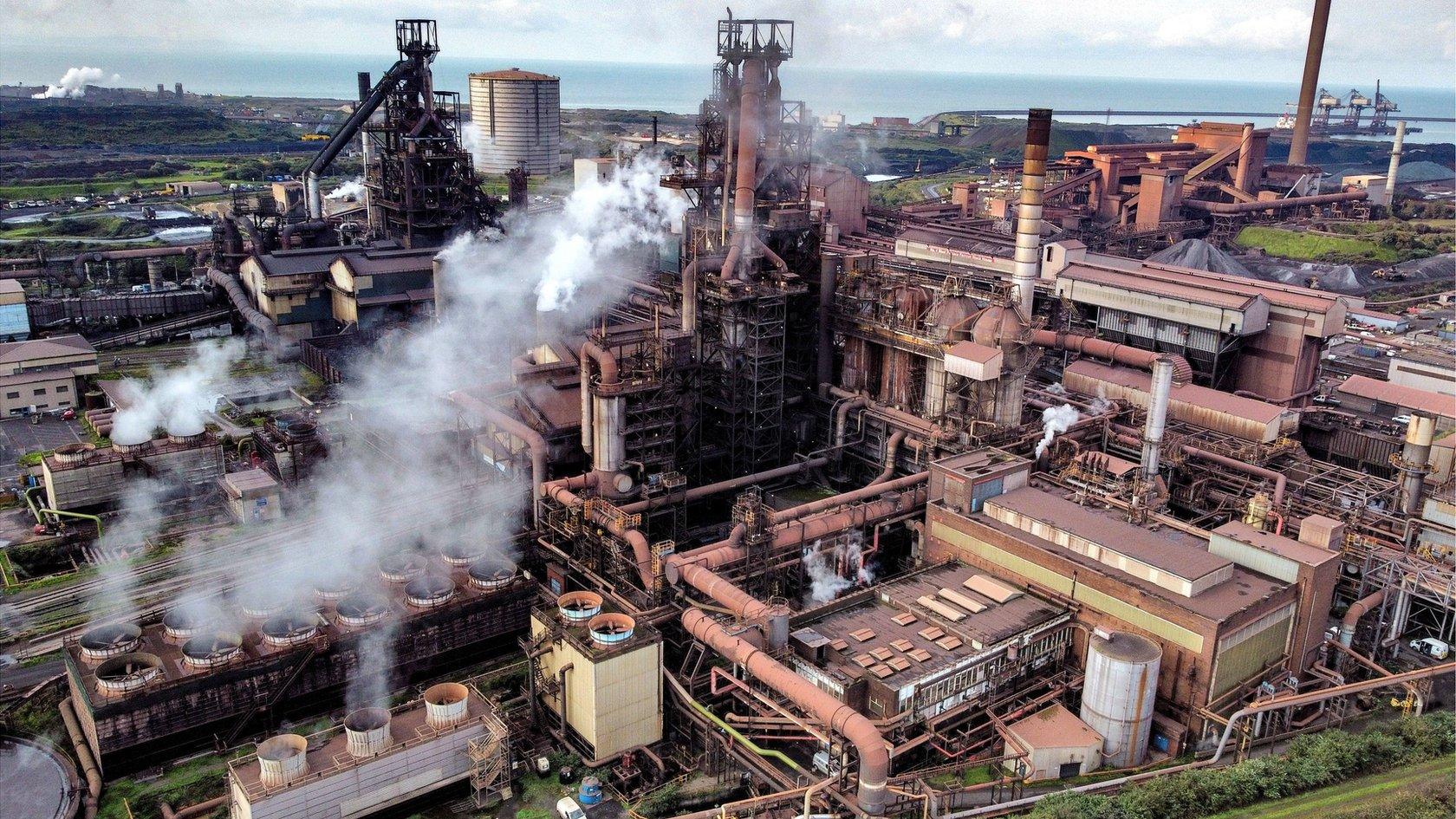Tata plans could cost thousands more jobs - report

The report warns that thousands of jobs beyond the Port Talbot works are at risk
- Published
Tata Steel’s restructure could cost thousands more jobs in the community surrounding the Port Talbot works unless action is taken, a report has warned.
A confidential economic assessment, seen by BBC Wales, warned Tata’s plans to cut 2,800 roles could mean up to 9,500 are lost when the broader impact is considered.
A transition board, chaired by Welsh Secretary David TC Davies, will oversee a £100m fund to help those affected.
Tata Steel said it was investing £1.25bn over the next four years in UK steel.
Tata rejects plea to keep Port Talbot blast furnace
- Published25 April 2024
Half of Port Talbot Tata jobs at risk, unions told
- Published2 February 2024
Tata job cuts 'devastating' for UK steel - union
- Published19 January 2024
Mr Davies said he would do “absolutely everything possible to save jobs and support those who may be losing their jobs”.
A formal period of consultation between Tata Steel and the unions over its plans has ended, and the company intends to press ahead with the closure of both Port Talbot blast furnaces by the end of September.
In the report prepared for the transition board, the authors said that “without mitigation” the cut of 2,800 jobs by Tata Steel could lead to an estimated 7,900 to 9,500 jobs being lost in the communities around all of its UK sites.
The bulk of those losses would be felt in Port Talbot, home to the UK’s largest steelworks. The report said the impact on employment in the local area “could range from 5,700 jobs to 6,800 jobs”.

Tata Steel said it would support workers affected by its restructure
The report's authors stressed that the figures are based on a scenario “without any intervention”- the transition board’s purpose is to help to mitigate the impact of Tata Steel’s decision.
Responding to the report, Mr Davies said: “None of us wanted to see this happen."
"When Tata came to us and said ‘we are looking to close the blast furnaces and pull out,’ we wanted to do absolutely everything possible to save jobs and support those who may be losing their jobs.”
He appealed to private companies “to realise Port Talbot’s potential, to come in and invest.”
"I understand what Tata’s decision means for the community in Port Talbot, and that is why I wanted to fight in cabinet for the UK government to put money into a transition fund to support the people and the area.”

Steel unions have lost a fight to keep one blast furnace open in Port Talbot
Tata Steel will build a state-of-the-art electric arc furnace, which melts scrap steel, on its Port Talbot site. The UK government is contributing £500m of the £1.25bn cost, with construction expected to begin in the summer of 2025.
The Transition Board’s funding includes £80m from UK Government and £20m from Tata Steel UK. The Board’s membership includes representatives from Welsh government, the local authority and unions.
The economic assessment said short-term objectives for the Board should include mitigating the “most severe and direct impacts” at the Tata Steel works and its closest supply chain.
In the medium term, over the next two to five years, the report authors said “high quality and well-advanced projects” were required to replace the work lost at Tata Steel. This includes securing work on the decommissioning of the blast furnaces and the building of the new electric furnace.

The Celtic Freeport includes a site adjacent to the Port Talbot steelworks
In five to ten years, new technology such as floating offshore wind and the benefits of the Celtic Freeport should be harnessed, the report said.
It warned that, without a plan to support workers, the restructure at Tata Steel “would accentuate and accelerate the ‘brain drain’ of younger, more highly skilled workers from the area”.
While there were opportunities from new technologies such as wind power and hydrogen generation, the report said that the Welsh government and the UK government would need to support large-scale projects.
Tata Steel said it was investing £1.25bn over the next four years in the UK steel industry, aiming to secure 5,000 jobs to “create a sustainable future with green steelmaking at the heart of an industrial ecosystem”.
“We are very aware of the impact such decisions have on the people and businesses in the region, and we are working hard to ensure a just transition through our own initiatives,” the company said.
“It is crucial that the decisions being made to support people, businesses and groups within the Port Talbot community are based on timely and accurate information.”
Related topics
- Published18 January 2024

- Published19 January 2024

- Published3 November 2023
